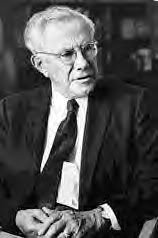
Last week I made a post about
Tillich's implied Ontological argument. I will now summarize. The concept of truth, X is "true" as opposed to being false, and the contradiction to X is fase by virtue of the fact that X is true, is the basis for understanding that being has depth. Its' not a proof that God exists, becasue in Tillich's view existence is a term we use for contingent things.God transcends existence but is being itself. So existence is less than being. Tillich opposed arguments that attempt to prove God exists because he saw them as objectifying God and turning him into a thing, an additional fact in the universe, rather than the ground of being.
The implied Tillich OA, rather than proving the existence of God actually demonstrates the depth of being. Remember Tillich said "if you know that being has depth you can't be an atheist." What he means by depth is there's more to being than just the surface level of things existing. So the idea of God as being itself is the idea that some aspect of reality's such that we can think of it as "holy." Or as
John Macquarrie puts it "holy being."
The OA says there is a category of logic called truth and its contradiction is false. It's not limited to anyone particular truth, but all truth, the concept of truth
itself. This concept is transcendent in that it can't be limited to any one place or time as long as we are using the same sense of the terms. In this sense it is unconditioned. Since God is also unconditioned in this way, being itself, apart form any particular example of being but the basis for all being then God is synonymous with truth.
The atheist throw a little tantrum because they want to control truth, without God. They want scinece to be the only source of truth. They say "how could 2+2=4 prove god?" The ides is not tha any given particular truth proves god, it's that the concept of a true answer and its contradiction is false, the fact that that category is universal, transcendent and unconditioned means that there is a transcendent unconditioned aspect of reality.
In the discussion on CARM two atheists in particular fell all over themselves reacting badly to this idea.
Discussion on CARM
Captain obvious
Science is truth... based on the available evidence at the time. It models and explains natural processes. When new discoveries are made, they replace or update previous theories. Knowledge grows incrementally, that is a thing.
Westvelitern
Two things can be contradictory and yet true in science. You should familiarize yourself with the Quantum world.
Originally Posted by
Metacrock 
you actually read that? did you notice it defines truth as fact!
so you can't argue against the concept of truth itself as unconditioned corrospnosense to what is.
Which was not the point in the first place. Man you are dense sometimes.
(but of cousre it was the point, it's my thread it's my point)
Can science be both true and not true? Sure, but you won't know what part is not true until something new that appears to be true updates it.
Originally Posted by
Metacrock 
look all that jazz has to assume ideas. Basque you talking language so you have to assume meaning to assume is to assume ideas.
Westveletern
you can't deny philosophy becuase it's the basis of scinece (natural philosophy).
Methodological naturalism is the basis of science.
Metacrock
of course that's not a philosophy is it? A little thing called Naturalism!
Westvleteren;
Still not getting the difference in scientific evidence and philosophical argument are you?
Metacrock
you arleady admitted that science is based upon philosophy. because naturalism is not a fact it's a philosophy. to have the concept of facts you have to have the concept o trut. this has been proven by the definitions from Websters.
you have contradicted yourself over and over. first you try to say that scinece gives facts. then you say facts have nothing to do with truth bu the dictionary fines truth by fact and fact by truth. then you say facts having nothing to do with the way he world is. then you scinece tells us the way the word is.
either the science of scinece is a systematic method for understanding th way things for or it' just a superstition. if the former then it is about true. it's in the category of truth telling.
You can't seal scinece off from the category of truth. you have tried to make it into it's own little category that is neither true nor false but you still want it to tell you facts and how the world is. That's tacitly accepting truth as a category.
I"m sorry you have never thought about this before. This is just part of the reason why scinece requires philosophy to make it make sense.
Westvleteren;
Methodological naturalism not philosophical naturalism
Metacrock
what do you think ethological naturalism is derived from? there's no fact in nature that says "this is natural." I don't see little tags on rocks and trees that say "natural tree." these are words, all words are constructs and all contracts are ideas.
Westvleteren;
Lets try to bring this down to the third grade level for you. Science explains facts
Metacrock
what is a fact? the dictionary says facts are part of truth. you deny scinece is truth. but here you are saying science accepts this idea that is part of truth.
Westvleteren;
That facts exist does not in any way lead to the existence of a god no matter what you definition of a god is. Do I need to try and bring that down to a kindergarten level for you?
Metacrock
Is what you just said true? how can it be true unless you accept a concept of truth? If you accept a concept of turth you must accept that there is a transcendent unconditioned, that correlates to God because that's what God is.
Westvleteren;
It is a method of explaining the world around us, nothing more or less.
Metacrock
O a method! ah I see, because it' sa method it just comes magically out of the earth we don't have to think about it right? methods aren't related to anything about ideas are they? Aren't methods derived form ideas? that makes them part of philosophy genius.
Westvleteren;
It does not tell us facts it explains facts, that seems to be hard for you to grasp. That explanation is never complete hence it changes over time as we gain further knowledge.
Metacrock
you have a concept of fact that's disjointed form truth even though the dictionary defines fact as truth and truth as fact. You admit it's not complete, which means to fit it into a larger understanding we have to augment it with ideas and constructs, the process of which is philosophy itself! But then you assert htat philosophy is cow dung and scinece doesn't' need it. You just showed us that it needs some sort of augmenting with thought.
I"m sorry you have never thought about this before. This is just part of the reason why scinece requires philosophy to make it make sense. (This is what I'm saying o you Westwhoseits)
Originally Posted by
souper genyus 
All knowledge is tentative and subject to revision or omission, but it is perhaps the only method of inquiry into contingent claims that has demonstrated that it can even get close to approaching the truth.
you have to have a category for truth to have an appraoch to truth. So that what you just said you have to tacitly accept the idea of truth. Which you did. Atheists throughout this thread have been treating the category of truth as though it's nothing more than some particular fact about things.
Westvleteren;]if we can see it, touch it and test it it is natural.
Ditto for you.
Metacrock
I know you can't understand concepts. tis' not in a lab manual so you can't get it, but try to reflect a big for a sec ok? You can't look at something in nature an see "natural" written on it. you have to apply an idea in your mind. That idea comes form thinking not form facts or observations. You don't see 'naturalism' in nature, you have to apply a construct. That's philosophy.
the idea of Naturalism comes from a philosophical idea. Saying that about touching it that's just par to the idea. Touching it doesn't tell you it's natural in the way that book says "this is natural." You have to apply a concept.
Westvleteren;
Try reading for comprehension.
Metacrock
look who is taking. you say the word but you don't understand it. you are really looking for slogans and brain washing rather than actually think about what I'm saying. you are not really thinking about any of the things I'm saying you are completely brain washed.
Westvleteren;
Nonsensical gibberish that has no bearing on reality. If my kids came up with that nonsense I would have them committed.
Metacrock
To define reality you have to think about the concept. that is philosophy can't you get it? are you so dense you can't understand the difference in observing and thinking?
Westvleteren;
What part of evidence versus pure philosophical argumentation was lost on you?
Metacrock
the part where you can't understand Hume.. I'm sure you never read him but he say we don't see cause and effect we have to assume it. that means we are applying philosophy. the same with naturalism. natural is not a thing you see. it's a category of thought you impose.
what a genius can't even understand that!
Westvleteren;
Not what I said but then again your comprehension is abysmal.
Again not what I said Metacrack.
Metacrock
I'm not the one who can't think about what' being said. you contradict yourself everything you speak of methodology and naturism and then say it's not part of thinking.
you don't see methodology in nature. do you know that? [B]where is the methodology in nature. Is it in the desert in Arizona? where they do keep it?[/B]
These nonsense statements about "philosophical arguments are no good and "don't' mean nutt'n," have to stop. Nothing betrays an ignorance of the history of scinece more concretely than the attempt by scientism to rail road actual thinking.
First let's define scientism: the concept that scinece is the only form o knowledge, all other kinds f learning and knowing are invalid.Science is the only thing that tells us anything worth knowing.
How do we define Philosophy? There are a couple of answer that come up on Google which I think are simple and apt:
phi·los·o·phy/fəˈläsəfē/Noun
1. The study of the fundamental nature of knowledge, reality, and existence, esp. when considered as an academic discipline.
2. A set of views and theories of a particular philosopher concerning such study or an aspect of it. More »
http://www.dartmouth.edu/~phil/whatis/wsa.html
Philosophy's goal is nothing less than a systematic world view. Other fields study particular kinds of things. Philosophy asks how it all fits together. For example, if you want to learn about bodies, take a course in physics or biology. If you want to learn about minds, take a course in psychology. But if you want to learn about how minds are related to bodies, or how physics is related to psychology, then philosophy (of mind) is for you. Similarly, economics, political science, and art and music courses study different values (welfare, justice, and beauty). Then moral philosophers ask how these values are similar or different, when one may be traded off against another, and where any of these values fit into the physical world. Again, historians try to discover knowledge of the past and astronomers try to discover knowledge of stars and planets, but only philosophers ask what makes any of these beliefs knowledge, and how (or whether) we can have any knowledge at all. Such philosophical questions are very abstract, but that is what enables them to cover so many different fields at once.
you don't have to be doing academic philosophy to be philosophizing. This is why it's so incredibly ignorant for one to say thing like "philosophical arguments are no good." The same people turn right around and say "only scinece is worth knowing' spout all the slogans of scientific.
Then when push comes to shove they demonstrate that they are doing philosophy in place of scinece!
Science's proper domain is the workings of the physical world. Science is a systematic methodology for understanding the working of the psychical world.
As soon as you start making pronouncements to the effect that there is nothing else but the physical world, you are doing metaphysics (philosophy). Anytime you depart from the workings of the physical world to explain the bigger picture of what it means or what it entails or does not entail you are doing something else.
any kind of thinking about the nature of reality is by its nature
philosophy. I argued with an atheist the other day who thought he was protected from philosophy by using a "science" word like "methodology." He says science is naturalistic methodology. He says "I said methodology not philosophy." He thinks because he used a slogan that's approved by his ideology that means it's not philosophical. That is so extremely naive.
Method is not something we observe in the world, we have to make it up. We make it up based upon theory, ideas, thinking, hypothesis testing. All of this is derived from philosophy. Science used to be called "natural philosophy." The idea of "natural" is a concept, it has to be learned, ot had to be made up. It's philosophy it's not scinece per se. It's been expropriated by scinece but it's not science.
Method is derived from philosophical speculation.
At it's core science depends heavily upon philosophy and anytime one moves out from the micro level to the macro to understand the bigger picture one is doing philosophy. Philosophical arguments are fine and good and do they prove things, they are necessary to make. Even if they don't prove things per se they are necessary and they being done all the time by those who say they are no good. It's just that they dogmatically prescribe their version of philosophy and rule out versions that disprove their control over nature.






